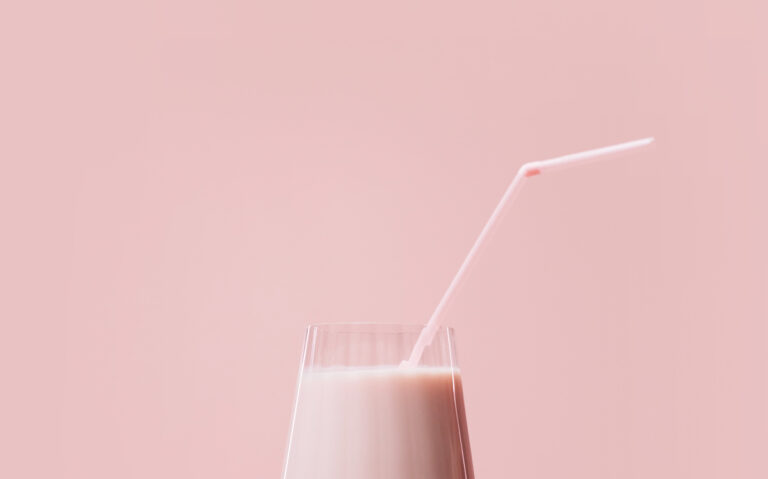Should you swap your go-to oat milk for potato milk?

Oat milk, soy milk, almond milk, peanut milk, coconut milk—it’s safe to say that plant-based milk has taken over. In the UK, nearly a quarter of British people now consume plant-based milk, with that figure rising to 33 per cent among 18 to 24-year-olds. But what if I told you that there’s a new kid on the block, one that is even more sustainable? Enter potato milk, the most sustainable dairy alternative yet.
Suitable for vegans and nut-free consumers, Swedish company DUG has just won a 2021 World Food Innovations Award in the Best Allergy Friendly Product Category for its creation. But why exactly does potato milk stand out from the non-dairy crowd?
“While the carbon footprint of dairy milk varies from country to country, the global average is a whopping 3.0kg CO2 per litre produced. When compared to oat milk’s average of 0.9kg CO2 per litre, it becomes clear there are huge carbon savings to be made,” reports Euronews.
These numbers, coupled with an increasing awareness of climate issues and a peak in sustainable living, are what makes the plant-based milk market so lucrative. That being said, it’s important to note that not all plant-based milk is that eco-friendly. Although almond milk has a low carbon footprint during production (an average of just 0.7 kilogram CO2 per litre) it still requires 120 litres to produce just one glass. More than 80 per cent of the world’s almonds are grown in California, an American state well-known for its droughts and wildfires.
And while almond milk’s high water production value uses less water than it takes to produce one glass of dairy milk, the carbon footprint of shipping it across the world seems to tilt the balance. Equally, soy milk also comes with its disadvantages—due to its primary use for feeding dairy farms and other livestock, soy production has led to vast areas of the Amazon rainforest being cleared, destroying vital ecosystems in the process.
Currently, oat milk remains the most sustainable option when it comes to plant-based milk. It uses slightly more CO2 per kilogram than almonds, but uses less land and significantly less water, making it, until now, the favoured dairy alternative. But wait until you hear about the real spud of the story.
Originally created by Professor Eva Tornberg at Lund University, DUG is the latest plant-based milk to challenge oat milk’s crown. Produced in Sweden, and now available to buy in shops in the UK and online, it is created from an emulsion of the plant-based product—in this case, potatoes—and rapeseed oil.
Available in ‘Original’, ‘Barista’ and ‘Unsweetened’ editions, potato milk is appealing to a young, climate aware, coffee-fuelled crowd, much like oat milk brands Oatly and Minor Figures. And apparently, it’s better for the environment than its competitors. “Everyone wants a plant-based drink that tastes delicious, goes perfectly with hot drinks and is kind to the environment. It’s a tough nut to crack, but we’ve got it figured out. And who would have guessed that the humble potato was the answer?” reads the DUG website.
According to the company, growing potatoes is twice as efficient as growing oats per square metre, and potato milk has a lower carbon footprint than any other plant-based milk, only 0.27 kilogram CO2 per litre. On top of that, compared to almonds for example, potatoes need a lot less water to grow. In fact, 56 times less.
Okay, now that we’ve settled the argument of whether potato milk is the one to go for, you’re probably presented with another crucial question: does it taste nice? While DUG’s products are too recent for me to give you a consensus on the matter, to date, “there’s been a fairly positive reception on Amazon, though several reviewers have commented that the milk splits in tea,” writes Euronews.
One thing is for sure, potato milk is about to make waves in the plant-based milk market. What’s next then, squash milk?





